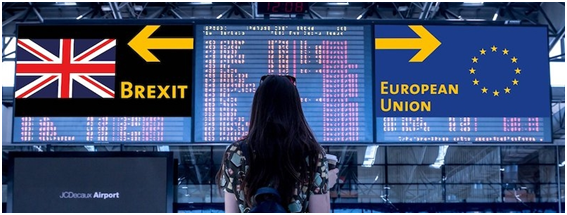
Now that the U.K general election has finally come to an end and the dust begins to settle, Clive Bates, a harm reduction advocate has aired his opinion on the subject of what might happen to vaping following the result. He said by next year, we will definitely be experiencing some progress on the next version of the Tobacco Products Directive (TPD).
Clive Bates said it is ultimately still too soon to tell what progress is it we are going to be experiencing in the coming year. He said he feels his 2016 opinions still hold firm where he said we are likely to be negotiating a settlement that requires compliance with single market regulations. Clive said, “So we could leave the EU and still have the TPD, without any clue of what the future holds about it. Even though this is not certain, it is still the most likely outcome based on my personal view.”
It is the belief of Clive Bates that there is a probability that the UK will continue to comply with the TPD both in its current and future forms. This will definitely not going to be good news for all the people that have put so much hope in Brexit to help them bring about liberalisation of vaping regulations.
The reason for this, according to Clive, is because chances are that there will be level playing field provisions and regulatory alignment in the future trade deal or probably because the UK government might eventually diverge from this particular directive while they give some excuses for their actions.
“It is quite easy now to predict what will be covered by regulatory alignment because the Northern Ireland Protocol of the Withdrawal Agreement already rolled out the list of regulations governing goods that must be applied in Northern Ireland.”
Clive suggested that UK harm reduction activists should consider operating a policy of “defensive assumption that the UK will continually comply with while they work to clarify and influence the approach of the UK government. When the UK approach to the TPD now eventually becomes clearer, the strategy can then be adjusted.”
He agrees that the UK has been able to make the current iteration of the TPD a workable one even though it still has some obvious flaws such as pointless limits to nicotine strength, restrictions on advertising, and the ban on snus.
Access to refill containers and flavours are presently on close monitoring due to the EVALI THC-related outbreak that happened in the US and the ongoing hysteria caused by a “teen epidemic” that cannot even be proved.
“The European Parliament is also not losing guard on this. A series of private meetings concerning e-cigarettes has been held by ENVI, which is its lead committee on tobacco policy, and a more substantive meeting involving a presentation from the Commission is also in the pipeline for January.”
Clive made it known that the ENVI committee, however, has preoccupied themselves with the recent developments happening in the US and are already following that narrative. So he said we should be expecting problems over:
- Dermal contact
- Accidental ingestion of e-liquid
- Customization or mixing of liquids
- Using untested device and hardware customization to consume e-liquids
Whichever way the government decides to swing, there is surely going to be a fight. If this is something you are not ready for, then you might need to start thinking about giving your support to the New Nicotine Alliance, which is the UK’s leading consumer charity for alternative nicotine products.
